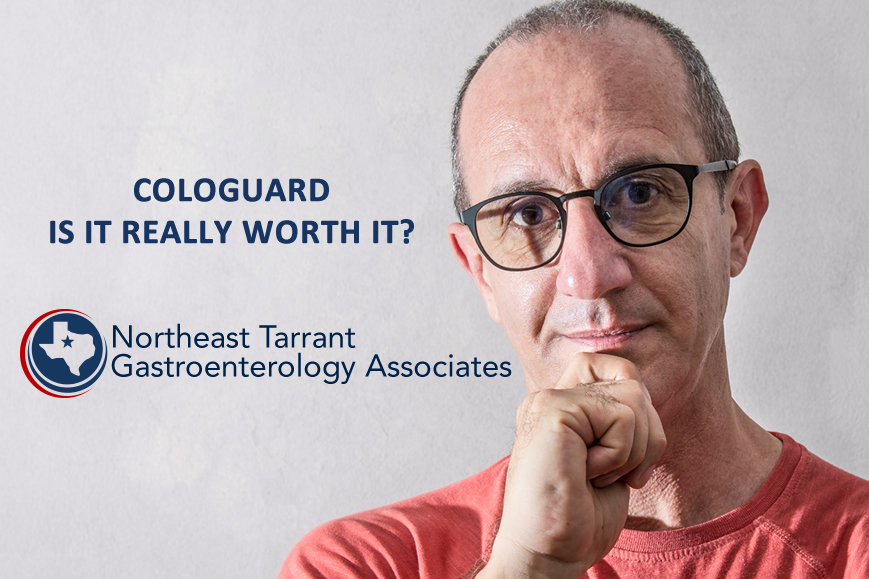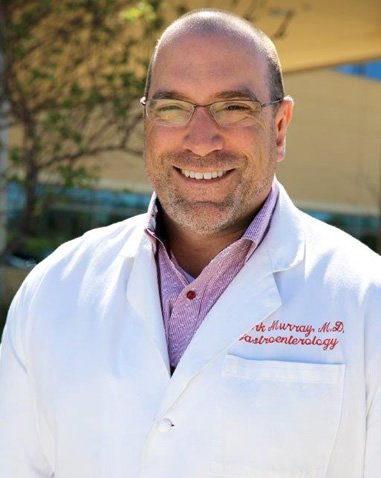Cologuard: Is It Really Worth It?
 Recently, we have had many our patients inquire into the possibility of having a Cologuard test performed instead of undergoing standard screening colonoscopy. For those of you reading this post and wondering to yourself “What is Cologuard?”, It’s a noninvasive, at-home test that uses a patient’s stool to screen them for colorectal cancer and precancerous polyps. On the surface, Cologuard sounds fantastic. No prep to drink. No “invasive probing.” No need to take time off from work. Just drop a small stool sample into the mail and wait for your results. What could be easier? The truth or the matter, however, is Cologuard has significant disadvantages and limitations when compared to a traditional screening colonoscopy:
Recently, we have had many our patients inquire into the possibility of having a Cologuard test performed instead of undergoing standard screening colonoscopy. For those of you reading this post and wondering to yourself “What is Cologuard?”, It’s a noninvasive, at-home test that uses a patient’s stool to screen them for colorectal cancer and precancerous polyps. On the surface, Cologuard sounds fantastic. No prep to drink. No “invasive probing.” No need to take time off from work. Just drop a small stool sample into the mail and wait for your results. What could be easier? The truth or the matter, however, is Cologuard has significant disadvantages and limitations when compared to a traditional screening colonoscopy:
- Cologuard’s accuracy rate for detecting colorectal cancers and precancerous polyps is touted to be 92%. While that is impressive for a stool-based test, it still means that 8% of lesions will go undetected, leaving those patients with a false sense of security.
- Cologuard has a 14% false-positive rate. While 14% isn’t awful, these false-positive tests do tend to generate quite a bit of unnecessary angst in the affected patients until they can eventually undergo a diagnostic colonoscopy.
- Unlike a standard screening colonoscopy which allows for detection, localization and potential treatment of colonic lesions, Cologuard testing offers only the possibility of detection. It provides neither a means for localizing nor treating lesions.
- A positive Cologuard test, whether accurate or not, typically changes the patient’s insurance coverage when it comes to getting a subsequent colonoscopy done. Once a patient has a positive Cologuard test, their colonoscopy is no longer considered a routine screening exam. Instead, the procedure must be reclassified as a diagnostic exam. Screening colonoscopies are frequently covered at 100% by many insurance companies. Diagnostic exams, however, are not. Diagnostic exams often require the patient to pay for a portion of the procedure.
Ultimately, the type of screening procedure to pursue (Screening Colonoscopy vs. Cologuard) is at the discretion of the patient. While we urge all our patients to get screened in one manner or another, we also want them to be well-informed about their choices and the potential drawbacks of some of the tests. For any of our current or potential patients that may have questions about their options, we encourage you to schedule an appointment with us to discuss your concerns.
OUR PHYSICIANS
Northeast Tarrant Gastroenterology Associates is comprised of Dr. Mark Murray, Dr. Eric Hill and Dr. Bryan Ong. They are all board-certified gastroenterologists who are also members of Digestive Health Associates of Texas (DHAT). They have two convenient office locations in Northeast Tarrant County (North Richland Hills and Ft. Worth) to serve your gastroenterology needs. They offer specialized services supporting the full spectrum of digestive healthcare, including screening colonoscopy.
Dr. Mark Murray earned his undergraduate degree at Texas A&M University and his M.D. degree at the University of Texas Health Science Center at Houston. He completed his internal medicine residency training at the University of Arkansas for Medical Sciences. He received his gastroenterology fellowship training at St. Louis University.
Dr. Eric Hill earned his undergraduate degree at Baylor University and his M.D. degree at the University of Oklahoma. He completed his internal medicine residency training at Vanderbilt University. He received his gastroenterology fellowship training at the University of South Florida.
CALL TODAY
817-284-2693

 Meet Dr. Mark Murray
Meet Dr. Mark Murray Meet Dr. Eric M. Hill
Meet Dr. Eric M. Hill Meet Dr. kevin Ho
Meet Dr. kevin Ho